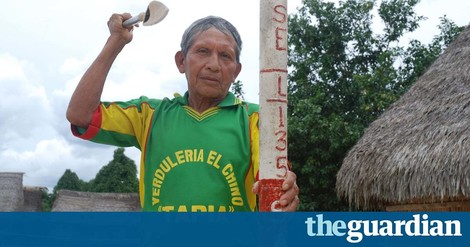Your podcast discovery platform
Curious minds select the most fascinating podcasts from around the world. Discover hand-piqd audio recommendations on your favorite topics.

piqer for: Climate and Environment
Pamela works as a Press & Communications Manager for an international NGO (IWGIA) defending indigenous peoples' rights. She holds an Erasmus Mundus MA in Journalism, Media & Globalisation from Hamburg and Aarhus University and an MA in Political Science from the University of Buenos Aires. She will be putting the eye on international media coverage of indigenous communities and their demands.
When An Extraction Project Pulls Out From A Cross-Border Area
What happens when a multinational company pulls out from an extractive project after 10 years? A few days ago, the Canadian company Pacific Exploration and Production decided to leave a one million hectare oil and gas concession that affected indigenous peoples' territories along the border between Peru and Brazil.
This is the way the company explained the change of plans:
"We wish to reiterate the company’s commitment to conduct its operations under the highest sustainability and human rights guidelines, avoiding damages to cultures and their surroundings; a value promise we feel remains intact."
A concession affecting indigenous peoples in isolation
But, how does a company with almost 5 billion USD revenue decide to stop investing? Did human rights standards play a role in this case? Back in 2009, the Matsés people from both sides of the border filed a lawsuit against the company. They demanded that the area overlapped it with a national park and should be a "no go" for mining. The reason was clear: the area was designated only for indigenous peoples in isolation (those who have not been contacted by mainstream society).
The article unfolds a complex case and explains the actors, actions, and interests intertwined in a long-standing process affecting a minority group in risk of disappearing.